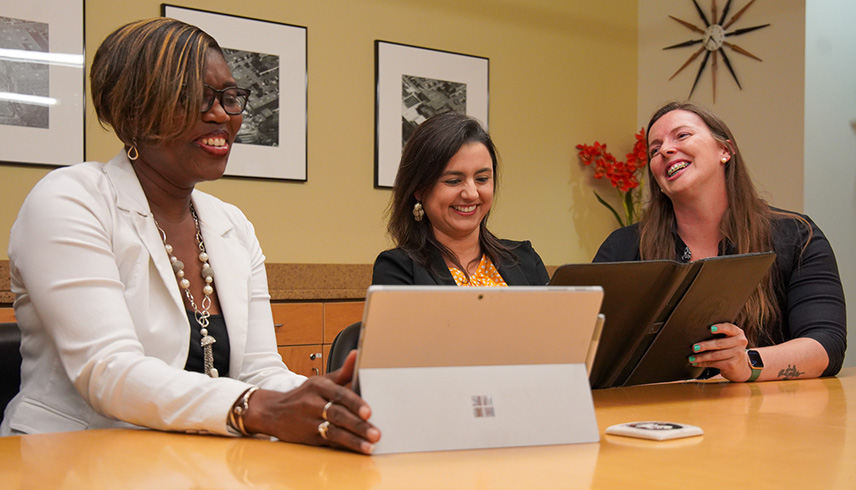School leaders are no strangers to dealing with challenges. For years, school leadership has dealt with issues of teacher recruitment, retention, student success, and safety. More recently, they have also had to address important conversations about equity and social justice. These historic and new challenges require a different approach to education and preparation of school leadership. And much like the challenges facing school leadership, the FSU Educational Leadership & Administration (EDA) program has evolved to help graduates emerge and find success in leadership roles across the country.

Dr. Christopher Small is the director of the online M.S./Ed.S. programs, and he has helped the program climb the national rankings. He attributes the success of the program to its mix of relevant research and practice-based opportunities in local schools and districts. Students in the program take part in evaluating, recruiting, and hiring teachers; examining and evaluating student data to develop growth-mindset approaches to instructional planning; and cultivating teacher efficacy. Afterwards, students engage in reflective conversations to evaluate and provide context for leadership decision making. The program also uses virtual leadership simulations to enhance student learning around "courageous leadership conversations and building supporting school climates for students, teachers, and stakeholders," says Small.
But beyond the curriculum and experiences, Small believes that the program's reputation has gained so much attention due to the way it treats students. "We are intentional about building relationships with students from start to finish and creating spaces for them to network and support each other as a learning community," says Small. "We work to set high expectations for our scholars, but also provide the resources and scaffolding needed to ensure high success rates."
We are intentional about building relationships with students from start to finish and creating spaces for them to network and support each other as a learning community
The program faculty also boast a rich range of diversity, strengths, and backgrounds. Current faculty include award-winning school administrators and former turnaround school leaders, as well as researchers that have a long history of school and instructional research. "The richness of our courses being taught by such a variety of faculty allow for students to glean from experts in the field that have also lived the day-to-day and year-to-year experience of school principals," says Small.
Despite the program's nationally recognized successes, Small says the program continues to evolve and improves. Particularly, he believes that the online program can continue to support and reach school districts across the state, providing resources and training to leaders. He also wants to continue supporting students, and he aims to continue to increase the Florida Educational Leadership Examination (FELE) first-time pass rates, especially for students of color. The program plans to accomplish this while maintaining an enrollment of around 100 graduate students.

Such goals might seem like a tall order, but considering the challenges facing school districts, Florida State University's Educational Leadership & Administration is proud to play its part as a model of excellence in the state and beyond.

